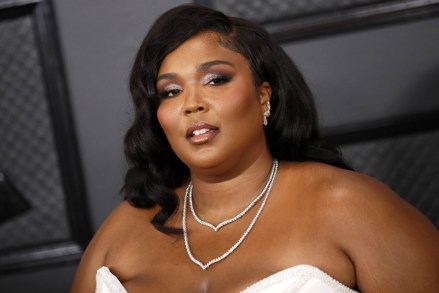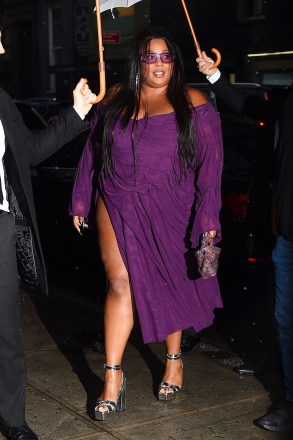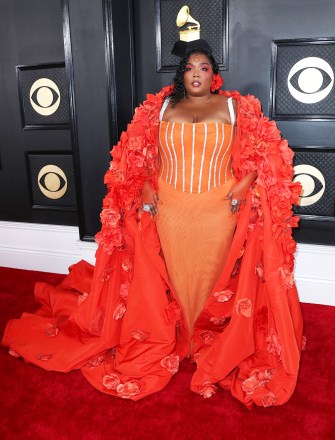
Sometimes, it’s okay just to say, “I don’t know.” Such a case was on display during the Wednesday (Aug. 10) edition of Watch What Happens Live, when Kathy Hilton joined her fellow Real Housewives of Beverly Hills co-star Crystal Kung Minkoff on the couch. During a segment called “Will Kathy Know Them?”, host Andy Cohen asked Kathy, 63, if she recognized certain famous people. When an image of Lizzo appeared, Andy, 54, asked Kathy if she recognized the “About Damn Time” singer. “I feel like I do,” said Kathy before asking, “Precious?”
This literally just happened (@misspettylamarr) 💀🫣 #RHOBH pic.twitter.com/cQvqzjw5N9
— Queens of Bravo (@queensofbravo) August 11, 2022
The crew on set broke out in laughter at Kathy suggesting Lizzo was Gabourey Sidibe, who starred as the character Precious in the 2009 film Precious: Based on the Novel’ Push’ by Sapphire. Kathy confusing Lizzo for Gabourey and referring to her by Gabourey’s character was a bit awkward, and Crystal tried to save her co-star. “She is precious, though. Lizzo is precious.” Kathy added, “That’s what I call her! Her nickname is Precious, to me.” From there, Andy moved the segment along.
While Kathy may not have meant any deliberate malice in her confusion, the act of white people (and white institutions, like media outlets) misidentifying people of color is considered part of a cognitive problem called the cross-race effect – or the impression that people of a race other than your own all look the same, per the Washington Post. “If we just identify someone as a ‘black person,’ then that is how we are going to see them,” Kareem Johnson, a professor of psychology and neuroscience at Temple University, told the Washington Post.
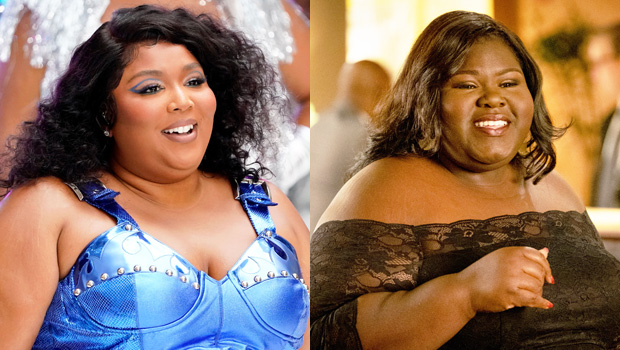
“We have much more difficulty recognizing people of a different racial group than we do our own,” adds Professor Johnson. This mistake implies that white people are seen as individuals, with other non-white groups being perceived as a monolith and that their ethnicity is their defining characteristic.
“I would be called [the name of] the only other black woman that was in the office, who was shades and shades darker than me, all the time,” Akilah Cadet, who founded a diversity and inclusion consulting firm, told the BBC in 2021.
Brent Hughes, a psychology professor at the University of California, Riverside, published research in 2019 on the high-level visual cortex – the area of the brain used to process faces – on a group of white participants. The group was given photos of faces of black and white people, and researchers altered them slightly to see how the participant’s brains reacted. The participants’ brains reacted strongly to subtle differences in white faces but didn’t register any differences in the black faces.
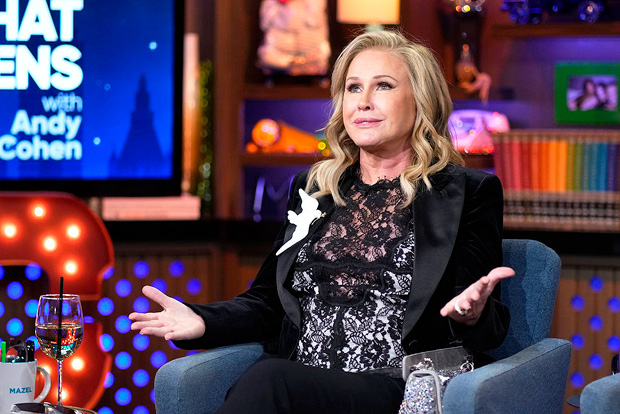
“This area of the brain that’s supposedly specialized for faces is really responding way, way more, or almost selectively, to white faces, and treating black faces as almost like they’re not faces,” said Hughes, per the BBC. “You see someone as part of another group, and you process them: you identify their racial group membership. And then you sort of cut processing off at that level. People lack the motivation to process an individual more deeply.”
However, there are ways to reset this and unlearn this behavior. “When you meet people for the first time, look at their face. Notice the details of the face and in particular, think about their situation,” says Susan Fiske, a psychology professor at Princeton University. “Thoughtfulness in individuating people when you first encounter them can help, and then you’re less likely to mix them up with other people.” And, if you’re on a late-night TV show and the host asks you to identify a woman you don’t recognize, it’s okay to just say you don’t know.
